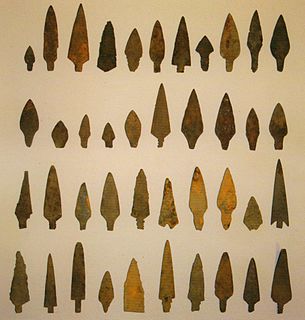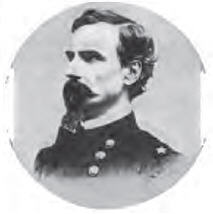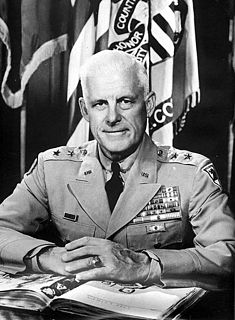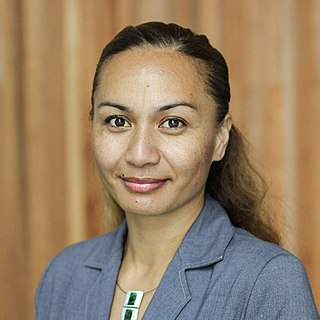
Juan Antonio Flecha Giannoni is an Argentine-born Spanish former professional road bicycle racer, who competed as a professional between 2000 and 2013. Flecha had a reputation of being a Classics specialist and to ride with an aggressive style as he was keen on participating in breakaways. His major victories include winning a stage of the 2003 Tour de France, successes at the two defunct classics Züri-Metzgete and Giro del Lazio in 2004, and the Omloop Het Nieuwsblad in 2010. He was also known for his numerous high placings in important one-day races, most notably Paris–Roubaix, where he finished in the top ten eight times without registering the victory. In the Grand Tours, he was often assigned to a role of domestique.
The Apache are a group of culturally related Native American tribes in the Southwestern United States, which include the Chiricahua, Jicarilla, Lipan, Mescalero, Mimbreño, Ndendahe, Salinero, Plains and Western Apache. Distant cousins of the Apache are the Navajo, with which they share the Southern Athabaskan languages. There are Apache communities in Oklahoma, Texas, and reservations in Arizona and New Mexico. Apache people have moved throughout the United States and elsewhere, including urban centers. The Apache Nations are politically autonomous, speak several different languages and have distinct cultures.

The Corps of Volunteer Troops was a Fascist Italian expeditionary force which was sent to Spain to support the Nationalist forces under General Francisco Franco against the Spanish Republic during the Spanish Civil War, 1936–39.

Jicarilla Apache, one of several loosely organized autonomous bands of the Eastern Apache, refers to the members of the Jicarilla Apache Nation currently living in New Mexico and speaking a Southern Athabaskan language. The term jicarilla comes from Mexican Spanish meaning "little basket", referring to the small sealed baskets they used as drinking vessels. To neighboring Apache bands like the Mescalero and Lipan they were known as Kinya-Inde . The Jicarilla called themselves also Haisndayin translated as "people who came from below", because they believed themselves to be the sole descendants of the first people to emerge from the underworld, the abode of Ancestral Man and Ancestral Woman who produced the first people.

The Battle of Maipú was a battle fought near Santiago, Chile on April 5, 1818 between South American rebels and Spanish royalists, during the Chilean War of Independence. The Patriot rebels led by Argentine general José de San Martín effectively destroyed the Spanish forces commanded by General Mariano Osorio, and completed the independence of the core area of Chile from Spanish domination.

Philip St. George Cooke was a career United States Army cavalry officer who served as a Union General in the American Civil War. He is noted for his authorship of an Army cavalry manual, and is sometimes called the "Father of the U.S. Cavalry." His service in the Civil War was significant, but was eclipsed in prominence by the contributions made by his famous son in law, J.E.B. Stuart, to the Confederate States Army.

The 1st Cavalry Regiment is a United States Army regiment that has its antecedents in the early 19th century in the formation of the United States Regiment of Dragoons. To this day, the unit's special designation is "First Regiment of Dragoons". While they were the First Regiment of Dragoons another unit designated the 1st Cavalry Regiment was formed in 1855 and in 1861 was re-designated as the 4th Cavalry Regiment. The First Dragoons became the 1st Cavalry Regiment since they were the oldest mounted regiment.

The Battle of Cieneguilla was an engagement of the Jicarilla War involving a group of Jicarilla Apaches, possibly their Ute allies, and the American 1st Cavalry Regiment on March 30, 1854 near what is now Pilar, New Mexico. The Santa Fe Weekly Gazette reported that the action "was one of the severest battles that ever took place between American troops and Red Indians." It was one of the first significant battles between American and Apache forces and was also part of the Ute Wars, in which Ute warriors attempted to resist Westward expansion in the Four Corners region.

John Wynn Davidson was a brigadier general in the United States Army during the American Civil War and an American Indian fighter. In 1866, he received brevet grade appointments as a major general of volunteers and in the regular U.S. Army for his Civil War service,
Lafayette Head was the first Lieutenant Governor of Colorado, serving from 1876 to 1879 under Governor John Long Routt.

Garrison Holt Davidson was a United States Army officer, combat engineer, commander, and military educator from the 1920s through World War II and into the Cold War-era. Commissioned as one of the youngest generals during World War II, he achieved the rank of lieutenant general before his mandatory retirement from the army in 1964. Davidson served as the Superintendent of the United States Military Academy from 1956 to 1960. He also played and coached football at West Point, helming the Cadet squad as head coach from 1933 to 1937, compiling a record of 35–11–1.
The Flechas were a special forces unit of the Portuguese secret police that operated in Angola and Mozambique during the Portuguese Colonial War. Unlike most of the other Portuguese special forces that were employed in the several theatres of operations of the conflict, the Flechas were not a military unit but a PIDE/DGS (police) unit.

Admiral Charles Maynard "Savvy" Cooke Jr., USN, was a United States Navy four star admiral who saw service in World War I and World War II and later served as commander of United States Seventh Fleet (COMSEVENTHFLT) from 1946 to 1947 and commander of U.S. Naval Forces, Western Pacific (COMNAVWESPAC) from 1947 to 1948.

The 2012 Utah gubernatorial election was held on November 6, 2012. It was won by Republican incumbents, Governor Gary Herbert and Lieutenant Governor Greg Bell.

The Jicarilla War began in 1849 and was fought between the Jicarilla Apaches and the United States Army in the New Mexico Territory. Ute warriors also played a significant role in the conflict as they were allied with the Jicarillas. The war started when the Apaches and Utes began raiding against settlers on the Santa Fe Trail. Eventually, in 1853, the American army retaliated which resulted in a series of battles and campaigns that ended in 1854 when a large military expedition managed to quell most of the violence. However, some minor skirmishing continued into 1855.

Fort Massachusetts was a military installation built in the San Luis Valley in Southern Colorado. It was located near the western bank of Ute Creek on the base of Mount Blanca and sat at an elevation of 8,000 feet.

The Green Party of Aotearoa New Zealand female co-leadership election, 2018 is an election that took place between 26 March and 7 April 2018 to determine the future leadership of the Green Party of Aotearoa New Zealand.
Flechas Rayadas or Striped Arrows was a Jicarilla Apache chief of the band that, together with Francisco Chacon's warriors, defeated Lieutenant Davidson's detachment of 60 men from the First Regiment of Dragoons in the Battle of Cieneguilla, in the Embudo Mountains, on April 4, 1854, killing 22 and wounding 36. On April 7, being Lieutenant Colonel Cooke on the Jicarillas' trail, General Garland sent word to Cooke that a chief of the Jicarillas who had attacked Lieutenant Davidson's command, Flechas Rayadas, had offered to return all the horses and arms captured in that fight if peace could be made; the chief's proposal was rejected.
Francisco Chacon was a Jicarilla Apache chief, leaqder in the Jicarilla uprising of 1854. He led the band that defeated the Davidson detachment of the First Regiment of Dragoons in the Battle of Cieneguilla: the Jicarilla, led by Francisco Chacon, their principal chief, and Flechas Rayadas, fought with flintlock rifles and arrows, killing 22 and a wounding another 36 of 60 dragoon soldiers, who then retreated to Ranchos de Taos lighter by 22 horses and most of the troops' supplies.
Lobo Blanco or White Wolf was a Jicarilla Apache chief of the band that, with 30 warriors, raided the horse herd of the Second Regiment of Dragoons at Fort Union, and, reached up near he Canadian River, was defeated by Lieutenant Bell's Dragoon detachment in the Battle of Canadian River on April 4, 1854, before the Battle of Cieneguilla; repeatedly wounded, the chief was finally killed crushing him under a boulder.













